Politics
Whether it’s Trump or Harris in office, Starmer will need an incredible US ambassador. Here’s my vote | Martin Kettle
The widening of the Middle East war has a multiplicity of woeful causes and grim consequences. Many have the potential to become even more intractable in the weeks to come. Fresh human suffering in Israel, Lebanon and beyond is only the start of it. Donald Trump is wrong to claim we are on the brink of a third world war. But these events have global implications. Remember what happened after 9/11.
The latest bombings and missile attacks mark a historic failure for politics and diplomacy. This is not the first such failure in the Middle East. But wishing that diplomacy could prevail will not make it happen, and even fragile ceasefires are a long way off right now. As angry populations rally behind the respective combatants the prospects for desperately needed political solutions are almost negligible. You can’t stop a war if those on all sides are determined to fight.
On the global scale, the implications for Britain and for Keir Starmer’s government come a long way down the list of the escalation’s most important consequences. In domestic terms, however, they still matter very much indeed. The Gaza war has already made a powerful impact on British politics. Israel’s latest conflict with Iran and its proxies is likely to do the same. The shadow of the Iraq war is a lasting one, more than 20 years on.
Yet Britain is not some touchline observer of events in the Middle East. British listening stations in Cyprus monitor the Middle East 24/7. British jets, based in Cyprus, fly over Syria and Iraq almost daily. Those same British jets flew missions to help protect Israel in April, and did so again this week in response to Iran’s missile attacks. Like it or not, Britain also has a history in the region.
All of which underscores the high seriousness of the strategic choices that Starmer faces in foreign policy. Like all European nations, Britain now exists in an unstable world shaped by Chinese power, the threat from Russia, US political uncertainty and climate change. It has expelled itself from the European Union. Starmer was in Brussels today to try to make the best of these volatile realities.
No one should kid themselves that this is not a difficult hand to play. The difficulty lies behind the escapist and trivialising foreign policy solutions in which Boris Johnson and Liz Truss took refuge, in office and afterwards. Starmer’s seriousness offers a quite different response to theirs but it brings another sort of danger. It puts him at risk of not challenging some inherited orthodoxies of British foreign policy at a newly unstable time for which they are no longer adequate. Dean Acheson’s 1962 comment that Britain had lost an empire but not yet found a role still echoes.
Starmer himself has little background in foreign policy. He gets day-to-day advice from his national security adviser, Tim Barrow, and his foreign policy adviser, Ailsa Terry. It is hard to say from the outside if they are the ideal team for the biggest foreign policy call he faces as prime minister. That call is not, though, over the Middle East war, or the defence of Ukraine. It is not even over the relationship with the EU. It is over the relationship with the US.
British foreign policy always seeks to hug America close. But a month from now, the US reaches a fork in the road. Trump and Kamala Harris offer radically different approaches to the country’s global role. These differences will shape Washington’s approach to every important global issue – including Ukraine, the Middle East, China, climate, and digital regulation – for the coming four years. They will be reflected, too, in the way the US operates towards international bodies including the United Nations, Nato, the International Monetary Fund and the international criminal court.
The outcome will shape British foreign policy too. A Harris victory would permit something like business as usual. But a Trump win would not. Trying to hug Trump close risks being unsuccessful, dangerous and damaging. Even trying to influence him would require a very special skill set, notably the ability to catch Trump’s attention on Fox News. And Harris would be operating in a more volatile world, too, in which constrained US power might not give priority to British and European interests.
That is why, for Starmer, there is an umbilical link between the pressures of a massive event such as the Middle East war and an otherwise relatively niche decision, like who should be the next UK ambassador to the US. Seen through the global lens, the imminent appointment of Karen Pierce’s successor in Washington is relatively minor. Seen through the UK lens, however, it is one of the hinges on which the success or failure of Starmer’s government will depend.
Unsurprisingly, No 10 has said the Washington job – the special relationship’s most special post – will only be allocated after the US election. But it will be a defining moment all the same. Politicians including David Miliband, Catherine Ashton and Peter Mandelson have been mentioned. So have current ambassadors, including Menna Rawlings (now in Paris) and Barbara Woodward (now at the UN). Whitehall veterans such as Tom Scholar (former head of the Treasury) and Vijay Rangarajan (now head of the Electoral Commission) may be in the frame too.
It’s a job that Labour, nowadays full of West Wing wannabes, has always taken especially seriously. Peter Jay, who died last month, was appointed to the ambassador’s luxurious Massachusetts Avenue residence by his Labour prime ministerial father-in-law, James Callaghan, in 1977. “We want you to get up the arse of the White House and stay there,” were the instructions from New Labour in 1997, when the late Christopher Meyer was despatched to be Tony Blair’s man in Washington.
The appointment rests very personally with Starmer. He has surely now learned that the global agenda will also determine Labour’s future, whether Trump or Harris wins. The appointee therefore needs to be someone with the ear of the president but with the ear of the prime minister as well. That’s why, in the end, my prediction is that the job will go to a man who, untypically, did not reply to my inquiries on the subject this week.
A generation ago, as Blair’s chief of staff, it was he who gave Meyer those robust instructions. It was also he who played a key role in the hard-won peace process in Northern Ireland. At a time when another peace process is again so urgent, it is hard to think of a stronger candidate than Jonathan Powell.
-
Do you have an opinion on the issues raised in this article? If you would like to submit a response of up to 300 words by email to be considered for publication in our letters section, please click here.
Politics
The Tata family member who became a British MP and fought for India’s freedom

 Picryl
PicrylThe name Shapurji Saklatvala may not be one that leaps out of the history books to most people. But as with any good tale from the past, the son of cotton merchant – who is a member of India’s supremely wealthy Tata clan – has quite a story.
At every turn, it seems that his life was one of constant struggle, defiance and persistence. He shared neither the surname of his affluent cousins, nor their destiny.
Unlike them, he would not go on to run the Tata Group, which is currently one of the world’s biggest business empires and owns iconic British brands like Jaguar Land Rover and Tetley Tea.
He instead became an outspoken and influential politician who lobbied for India’s freedom in the heart of its coloniser’s empire – the British Parliament – and even clashed with Mahatma Gandhi.
But how did Saklatvala, born into a family of businessmen, pursue a path so different from his kin? And how did he blaze a trail to become one Britain’s first Asian MPs? The answer is as complex as Saklatvala’s relationship with the his own family.
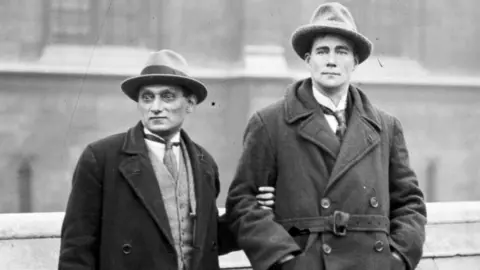 Getty Images
Getty ImagesSaklatvala was the son of Dorabji, a cotton merchant, and Jerbai, the youngest daughter of Jamsetji Nusserwanji Tata, who founded the Tata Group. When Saklatvala was 14 years old, his family moved into Esplanade House in Bombay to live with Jerbai’s brother (whose name was also Jamsetji) and his family.
Saklatvala’s parents separated when he was young and so, the younger Jamsetji became the main paternal figure in his life.
“Jamsetji always had been especially fond of Shapurji and saw in him from a very early age the possibilities of great potential; he gave him a lot of attention and had great faith in his abilities, both as a boy and as a man,” Saklatvala’s daughter, Sehri, writes in The Fifth Commandment, a biography of her father.
But Jamsetji’s fondness of Saklatvala made his elder son, Dorab, resent his younger cousin.
“As boys and as men, they were always antagonistic towards each other; the breach was never healed,” Sehri writes.
It would eventually lead to Dorab curtailing Saklatvala’s role in the family businesses, motivating him to pursue a different path.
But apart from family dynamics, Saklatvala was also deeply influenced by the devastation caused by the bubonic plague in Bombay in the late 1890s. He saw how the epidemic disproportionately impacted the poor and working classes, while those in the upper echelons of society, including his family, remained relatively unscathed.
During this time, Saklatvala, who was a college student, worked closely with Waldemar Haffkine, a Russian scientist who had to flee his country because of his revolutionist, anti-tsarist politics. Haffkine developed a vaccine to combat the plague and Saklatvala went door-to-door, convincing people to inoculate themselves.
“Their outlooks had much in common; and no doubt this close association between the idealist older scientist and the young, compassionate student, must have helped to form and to crystallise the convictions of Shapurji,” Sehri writes in the book.
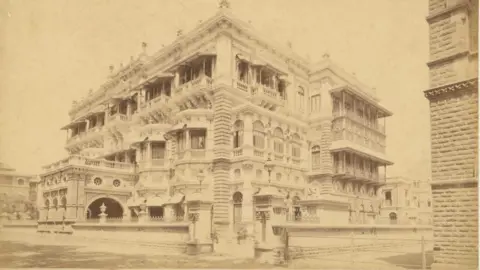 Getty Images
Getty ImagesAnother important influence was his relationship with Sally Marsh, a waitress he would marry in 1907. Marsh was the fourth of 12 children, who lost their father before becoming adults. Life was tough in the Marsh household as everybody had to work hard to make ends meet.
But the well-heeled Saklatvala was drawn towards Marsh and during their courtship, he was exposed to the hardships of Britain’s working class through her life. Sehri writes that her father was also influenced by the selfless lives of the Jesuit priests and nuns under whom he studied during his school and college years.
So, after Saklatvala travelled to the UK in 1905, he immersed himself in politics with an aim to help the poor and the marginalised. He joined the Labour Party in 1909 and 12 years later, the Communist Party. He cared deeply about the rights of the working class, in India and in Britain, and believed that only socialism – and not any imperialist regime – could eradicate poverty and give people a say in governance.
Saklatvala’s speeches were well received and he soon became a popular face. In 1922, he was elected to parliament and would serve as an MP for close to seven years. During this time, he advocated ferociously for India’s freedom. So staunch were his views that a British-Indian MP from the Conservative Party regarded him as a dangerous “radical communist”.
During his time as an MP, he also made trips to India, where he held speeches to urge the working class and young nationalists to assert themselves and pledge their support for the freedom movement. He also helped organise and build the Communist Party of India in the areas he visited.
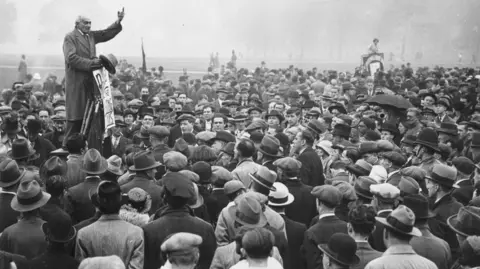 Getty Images
Getty ImagesHis strident views on communism often clashed with Mahatma Gandhi’s non-violent approach to defeat their common adversary.
“Dear Comrade Gandhi, we are both erratic enough to permit each other to be rude in order to freely express oneself correctly,” he wrote in one of his letters to Gandhi, and proceeded to mince no words about his discomfort with Gandhi’s non-co-operation movement and him allowing people to call him “Mahatma” (a revered person or sage).
Though the two never reached an agreement, they remained cordial with each other and united in their common goal to overthrow British rule.
Saklatvala’s fiery speeches in India perturbed British officials and he was banned from traveling to his homeland in 1927. In 1929, he lost his seat in parliament, but he continued to fight for India’s independence.
Saklatvala remained an important figure in British politics and the Indian nationalist movement until his death in 1936. He was cremated and his ashes were buried next to those of his parents and Jamsetji Tata in a cemetery in London – uniting him once again with the Tata clan and their legacy.
Politics
Reeves considers income tax threshold freeze
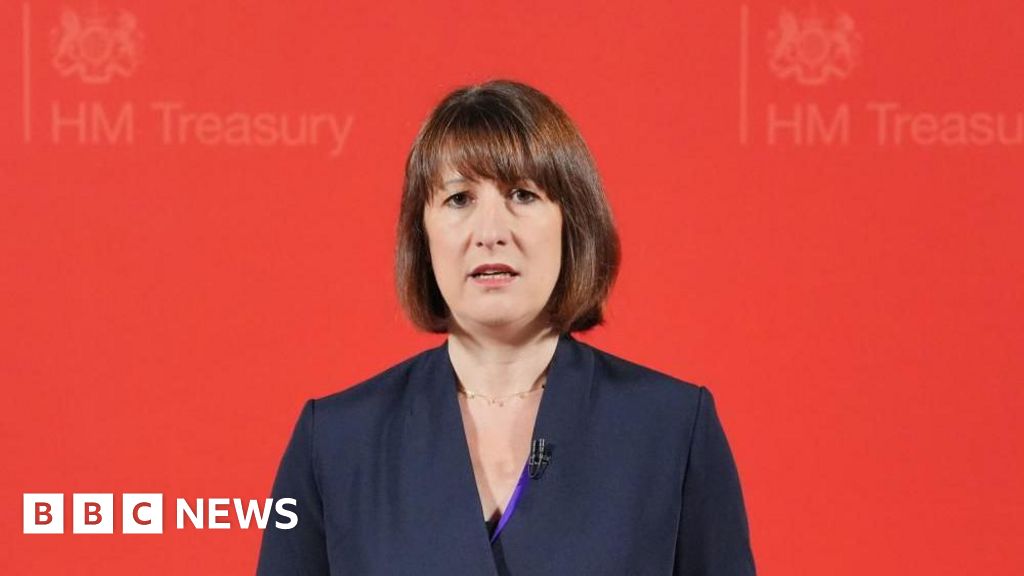
An announcement in the upcoming budget of a continued freeze on income tax thresholds beyond 2028 would not constitute a breach of Labour’s election manifesto promise, government sources have insisted.
In the run-up to June’s general election, both leader Sir Keir Starmer and the soon-to-be Chancellor Rachel Reeves pledged to “not increase taxes on working people”.
But a threshold freeze could allow the chancellor to raise an estimated £7bn by bringing more people into the tax system.
Reeves is currently trying to find £40bn through a mixture of savings and tax rises that she will announce in the new government’s first budget on Wednesday 30 October.
Tax thresholds were frozen by the previous Conservative government in 2022, but were due to rise again each year from 2028.
The chancellor is now said to be weighing a plan to extend the freeze for the remainder of the parliament.
The decision not to increase tax thresholds would continue a process called “fiscal drag”, in which more people are “dragged” into paying tax, or higher rates of tax, as their wages rise and cross the unchanging thresholds.
If Reeves goes ahead with the plan, roughly 400,000 more people will find themselves paying income tax at the basic rate.
Government insiders have insisted this does not breach Labour’s manifesto pledge to “not increase taxes on working people”.
Sources are pointing to the exact wording of the manifesto, which states that the “rates” of income tax would not rise.
In other words, in England, Wales and Northern Ireland these would remain – depending on income – at 20p, 40p and 45p.
But as people’s wages increased, so too would their tax bill.
In 2019, the Conservatives also pledged not to increase tax “rates” – and went on to freeze tax thresholds.
At the time, this was denounced by the Labour opposition as a “stealth tax”.
However, it is not one the party has specifically pledged to reverse.
Labour’s opponents will argue that an extension of a freeze would undermine the party’s wider-ranging promise not to increase taxes on working people.
Reeves has just 11 days to firm up her plans ahead of Budget day.
The country’s first female chancellor has warned of a £22bn “black hole” in the public finances – a gap caused by the rules the government has chosen to follow governing how much money it can borrow over the next five years.
Filling this hole would only be enough to “keep public services standing still”, the chancellor said this week.
This means she is hoping to find £40bn in order to avoid real-terms cuts to government departments.
Reeves has warned of “difficult decisions” ahead.
Politics
Senior Unite union official loses unfair dismissal claim

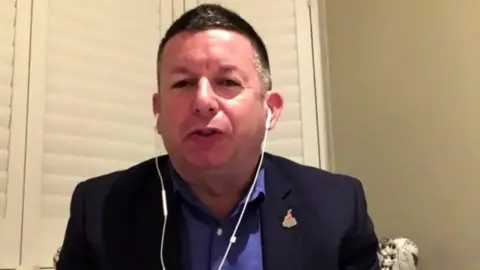 BBC
BBCA senior official at one of the UK’s largest trade unions has lost an unfair dismissal claim amid a police investigation into allegations of bribery, fraud and money-laundering at the organisation.
Howard Beckett was assistant general secretary at Unite the Union until his suspension in August 2022, four months after police raided the union’s London headquarters.
In his tribunal judgement, employment judge Richard Nicolle said police searches had also taken place at Mr Beckett’s “flat in London and home on the Wirral on 6 April 2022”.
Mr Beckett argued the claims against him were “baseless”.
His lawyer has told the BBC he is appealing the Employment Tribunal’s judgement, has launched legal action against the union and its general secretary for breach of privacy, and he noted the judge had been critical of Unite.
Mr Beckett was initially told his suspension was due to allegations of “misleading” the union’s ruling executive council in relation to the construction of its vastly over-budget hotel and conference centre in Birmingham.
The project was originally estimated to cost £7m but more than £100m was eventually spent.
An independent valuation later concluded the finished building was worth only £29m.
General secretary Sharon Graham commissioned an inquiry which, the tribunal said, led to the discovery of £14m which did not feature “in the final accounts and it remaining a mystery as to how and when this figure had been assessed and then presumably paid” to a contractor.
Mr Beckett was also told he had been suspended due to “concerns about the probity of awarding contracts for affiliated services”.
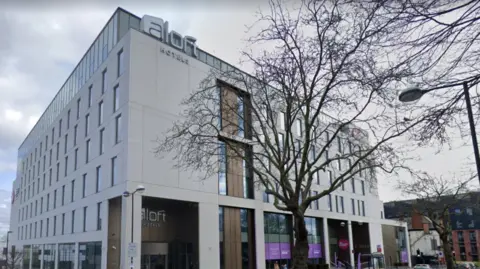 Google
GoogleA close ally of former Labour leader Jeremy Corbyn, Mr Beckett was off sick for almost 18 months before he resigned from Unite in January 2023.
His lawyer told the tribunal Mr Beckett had not been well enough to participate in a disciplinary hearing and the union’s disciplinary charges were “baseless”.
The employment judge rejected this, and also found Mr Beckett had not been demoted as he had claimed.
The judge did, however, say there were “significant deficiencies” in Unite’s “investigation and disciplinary processes”.
Judge Nicolle wrote: “It would have been extremely surprising in the Tribunal’s view had [Unite] allowed its Head of Legal to return to active employment in circumstances where there were ongoing police investigations into very serious matters to include bribery, money laundering and offences under proceeds of criminality legislation.”
Ms Graham, who succeeded Len McCluskey as Unite general secretary in 2021, did not give evidence to the tribunal.
The BBC has contacted Unite the Union for comment.
Politics
Labour tiptoes nervously towards a China policy

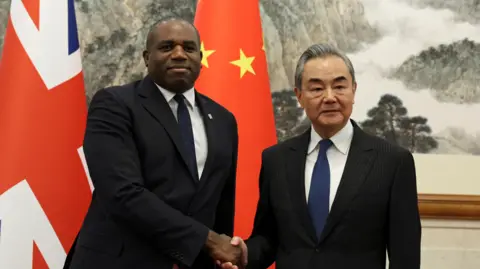 Reuters
ReutersLabour declared after the election that “Britain is back” on the world stage after years of Conservative retreat.
But when it comes to China, the government is tiptoeing nervously in the wings.
David Lammy’s trip to China is rare – he is only the second foreign secretary to visit in six years.
He held talks in Beijing with his powerful counterpart, Wang Yi, and Vice Premier Ding Xuexiang, before heading to Shanghai to meet British business leaders on Saturday.
You might think the Foreign Office would want to make a big thing of it, to emphasise the importance of the diplomatic repair job the foreign secretary is bent on.
But instead, the trip is taking place sotto voce.
There is little media access to Mr Lammy. There are no announcements about a new trade agreement, or cooperation on policy.
Whitehall sources tell me this in part the fault of Downing Street which, they say, is increasingly gripped by caution after a febrile few weeks.
No10 officials want to avoid political rows ahead of the Budget later this month. They do not want Labour and Conservative MPs to unite in accusing the government of putting economic gain ahead of human rights and international law.
There is a strong cross-party caucus in Westminster that is China-sceptic; seven MPs and peers remain officially sanctioned by Beijing as a result.
They are already accusing Mr Lammy of backtracking on pre-election promises to push the international courts to declare China’s treatment of the Uighur minority as genocide.
China audit looms
Perhaps the chief reason for the low-key nature of Mr Lammy’s visit is that Labour is still working out its policy towards China.
It is conducting what it calls a cross-Whitehall “audit” of Britain’s relationship with the country, which is not due to complete until next year. It is then that Chancellor Rachel Reeves, and perhaps even Prime Minister Sir Keir Starmer, may visit China.
For now, the government has a holding position which it sums up in three words: “challenge, compete, cooperate”.
It says it will challenge China on human rights abuses and its support for Russia in Ukraine. It will compete with China over trade. And it will cooperate with China over shared interests, such as global health and climate change.
If this sounds familiar, that is because other western powers use similar language. And the previous Conservative government’s policy was to “protect, align and engage”.
However, both parties have found it difficult to work out where precisely to draw the line.
Does “compete” involve banning Chinese electric vehicles from the UK’s automotive market?
Does “challenge” mean restricting lucrative Chinese students from attending cash-strapped UK universities?
Does “cooperate” involve sharing private medical research to help prevent a future pandemic?
‘New starting point’
The head of MI5, Ken McCallum, spoke only last week of “a threat that manifests at scale” from China, targeting Britain’s information and democracy.
Mr Lammy’s more prosaic aim on this visit is simply to re-establish some kind of working relationship with Beijing.
Under the Conservatives, UK-China relations blew hot and cold, between the diplomatic warmth of the so-called “golden era” to the hawkish aggression of more recent Conservative leaders.
Last year, then-Prime Minister Rishi Sunak called China the “greatest threat” to Britain’s economy; then-Foreign Secretary James Cleverly visited Beijing calling for re-engagement; his successor Lord Cameron resolutely ignored the country.
Mr Lammy says he wants to re-establish what he calls a more consistent and pragmatic relationship.
During his talks with Mr Wang, he said he was “struck by the scope for mutually beneficial cooperation on the climate, on energy and nature, of the science and tech, on trade and investment, on health and development.”
He said Beijing and London should “find pragmatic solutions to complex challenges”.
China appears up for that. Mr Wang said China-UK relations were “standing at a new starting point” and spoke of “our boosted confidence in bilateral cooperation”.
He even referred by name to Mr Lammy’s foreign policy slogan – “progressive realism” – which Mr Wang said, “has positive significance”.
So far, so conciliatory.
Drawing the line
Of course, Mr Lammy said both countries had “different perspectives” on some issues.
In a statement after the talks, the Foreign Office said he raised concerns about China’s military support for Russia in Ukraine, and how that was damaging China’s relationships in Europe.
The department also said he raised China’s treatment of the Uighurs in the Xinjiang region, “serious concerns” over the implementation of new national security laws in Hong Kong, and called for the release of the British media tycoon Jimmy Lai, who has been arbitrarily detained there.
But it insisted the meeting was “constructive across the full breadth of the bilateral relationship” and both sides committed to “regular discussions” at ministerial level.
For that ultimately is what this trip is all about: re-establishing links with the Chinese government.
The government’s priority is economic growth, and that is hard without a working relationship with its fourth largest trading partner.
But when it comes to China, it still remains unclear where Labour will draw the line between challenging, competing and cooperating.
Politics
No UK apology over slavery at Commonwealth
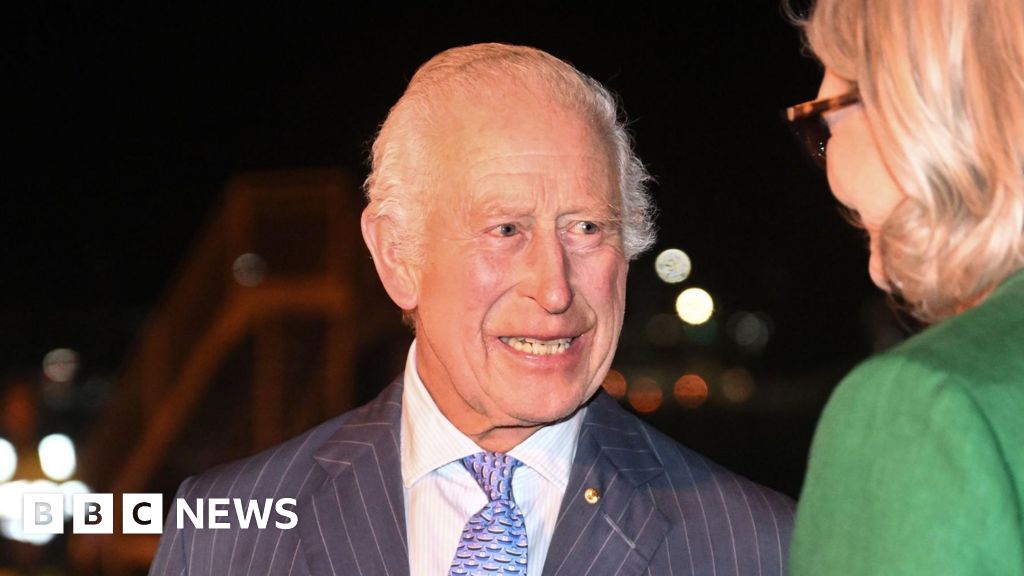
The government has said there will not be an apology over Britain’s role in the transatlantic slave trade when King Charles and Sir Keir Starmer visit the Commonwealth summit in Samoa next week.
A Downing Street spokesperson had already ruled out financial reparations.
Last year, the King spoke of his “greatest sorrow and regret” at the “wrongdoings” of the colonial era on a visit to Kenya, but stopped short of an apology, which would have depended on the agreement of ministers.
The Commonwealth Heads of Government Meeting, to be held in Samoa on 25 and 26 October, will bring together the leaders of 56 countries.
But even if the issue of historic links to slavery is raised at the summit, the UK government has told the BBC there are no plans for a symbolic apology.
Instead the focus will be on current issues, a government spokesperson said, such as “shared challenges and opportunities faced by the Commonwealth, including driving growth across our economies”.
Speeches from monarchs are made on the advice of ministers. This means the King would be unable to make an apology over the UK’s links to slavery unless he had the approval of the government.
Labour MPs including Bell Ribeiro-Addy had called for the UK government to officially apologise for its participation in the slave trade.
David Lammy, as an MP on the opposition benches in 2018, had said: “As Caribbean people we are not going to forget our history. We don’t just want to hear an apology, we want reparations.”
But with Labour now in power, Downing Street has ruled out an apology over slavery and ended speculation of any statement at the Commonwealth meeting in Samoa, which would have been the first international platform for such an apology to take place.
It means that the policy of not apologising continues from the previous government, when prime minister Rishi Sunak last year rejected the idea and said “trying to unpick our history is not the right way forward”.
Opponents of an apology have pointed to Britain’s prominent role in ending slavery, including legislation in 1807 to abolish the slave trade.
Discussions of formal apologies or reparations could still be raised by other countries, with Caribbean leaders having argued for some financial recognition of the legacy of slavery, with figures of £200bn being quoted.
The Commonwealth summit will also vote on a new secretary-general and all three of the candidates are supporters of reparations for transatlantic slavery.
It is an issue which strongly divides the public, including readers of the BBC’s Royal Watch newsletter, who got in touch by email.
“Those of us living now should not be made to feel guilty or apologise for something that had absolutely nothing to do with us,” Ruth, from the UK, said.
“We don’t like what happened, but we weren’t around then, so why should we say sorry?”
Ronald, from Bristol in the UK, took the opposite view.
“A sincere apology would acknowledge that grievance and, in my view, would go some way to assuaging the sense of injustice,” he said.
Sarah, in Ghana, said it would be “humane” of the King to deliver an apology.
“I believe it will go a long way to healing wounds caused by the slave trade,” she said.
The King and Queen Camilla arrived in Australia on Friday to begin their six-day tour of the country, which will be followed next week by the Commonwealth summit in Samoa.
Politics
Labour says it will cut benefits bill in its own way
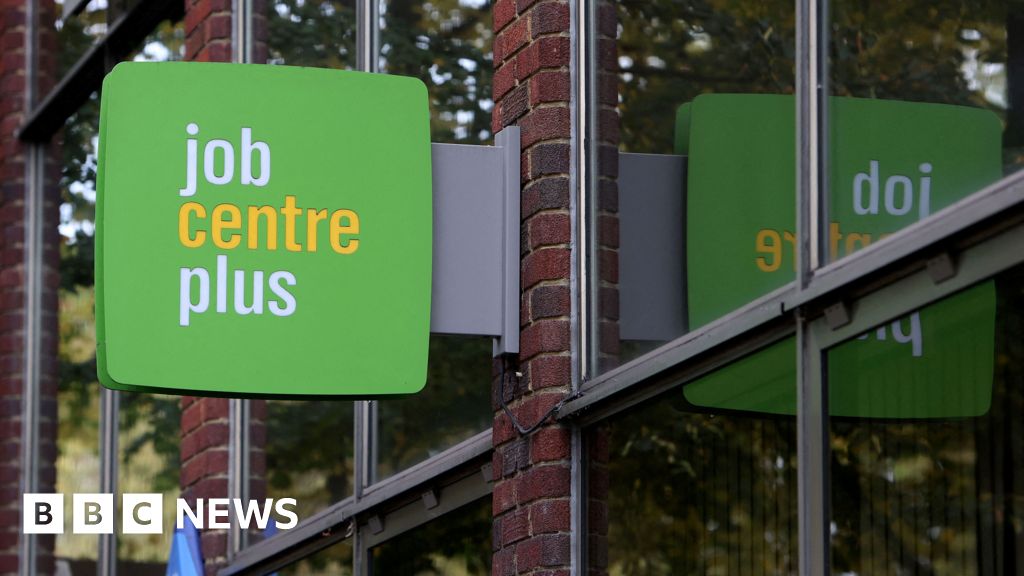
The government says “radical” reform of the system for getting people off sick back into work will help it slash the welfare bill.
Government sources have confirmed Labour is looking to “deliver savings” on the amount is spends on welfare in 30 October’s Budget.
But it says the savings will be delivered through “our own reforms” – rather than Conservative plans.
It comes after reports Chancellor Rachel Reeves is considering sticking with Conservative plans to restrict access to benefits on the grounds of ill-health.
The government has not ruled this out, but is emphasising its own plans to “radically” shake up benefits for people whose health limits their ability to work.
Planned changes – in a draft blueprint entitled Get Britain Working – are expected to be published later this autumn.
Labour wants to make changes to the Work Capability Assessment, which is used to determine if people can receive additional income-related benefits because of a health condition or disability.
It is promising a “proper plan to support disabled people to work”, as well as an as-yet unspecified plan to ensure every young person aged 18 to 21 is either “earning or learning”.
The changes will come alongside Health Secretary Wes Streeting’s plan to send “crack teams” of doctors to hospitals in areas with highest number of people off sick.
It has named Newcastle, Bolton and Blackpool as three cities where doctors will be sent to help people get back into the workforce.
Economic inactivity has spiralled post-pandemic, now affecting 9.3 million people who are neither in work nor looking for a job – a rise of 713,000 since Covid.
One in eight young people are now neither in education nor work.
New statistics show that 1.8 million inactive people – including 600,000 who are long-term sick – want to get back to work.
Kendall called the new figures “a shocking indictment of the inheritance left by the Conservatives and a stain on our nation”.
“The UK continues to be the only major economy whose employment rate hasn’t recovered from the pandemic,” she said.
“We will harness all the skills of the British people to get our country working again and our economy growing again.”
The reforms promise a major overhaul, combining Job Centres with the National Careers Service to offer better support and empowering local leaders to come up with solutions for boosting employment.
In the run up to the Budget, there has been speculation Chancellor Rachel Reeves is considering welfare cuts to help fill a reported £40bn spending gap.
The Work Capability Assessment decides what work-related conditions claimants must meet in order to keep getting benefits in full, and whether they are eligible for top-up payments.
Reeves is reportedly planning to stick with plans announced by her Conservative predecessor Jeremy Hunt to make changes to the test, which the Tories claimed would save an estimated £1.3bn a year by 2028-29.
The government also inherited a public consultation on changing Personal Independence Payments (PIP), a separate payment paid to working-aged people, including those in work, to cover additional health-related costs.
Changes considered by the Tories included replacing monthly cash payments with a vouchers system or one-off grants towards particular costs.
To date, Liz Kendall has not said whether she supports or opposes the thrust of her Tory predecessor’s proposals.
Employment Minister Alison McGovern told Radio 4’s Today programme: “If we do the same as the Tories have done for 14 years, we’ll have the same failure.”
-

 Science & Environment1 month ago
Science & Environment1 month agoHyperelastic gel is one of the stretchiest materials known to science
-

 Technology3 weeks ago
Technology3 weeks agoIs sharing your smartphone PIN part of a healthy relationship?
-

 Science & Environment1 month ago
Science & Environment1 month ago‘Running of the bulls’ festival crowds move like charged particles
-

 Science & Environment1 month ago
Science & Environment1 month agoMaxwell’s demon charges quantum batteries inside of a quantum computer
-

 Science & Environment1 month ago
Science & Environment1 month agoHow to unsnarl a tangle of threads, according to physics
-

 Technology1 month ago
Technology1 month agoWould-be reality TV contestants ‘not looking real’
-

 Science & Environment4 weeks ago
Science & Environment4 weeks agoX-rays reveal half-billion-year-old insect ancestor
-

 Science & Environment1 month ago
Science & Environment1 month agoLiquid crystals could improve quantum communication devices
-

 Science & Environment1 month ago
Science & Environment1 month agoSunlight-trapping device can generate temperatures over 1000°C
-

 Science & Environment1 month ago
Science & Environment1 month agoQuantum ‘supersolid’ matter stirred using magnets
-

 Womens Workouts4 weeks ago
Womens Workouts4 weeks ago3 Day Full Body Women’s Dumbbell Only Workout
-

 Science & Environment1 month ago
Science & Environment1 month agoWhy this is a golden age for life to thrive across the universe
-

 Science & Environment1 month ago
Science & Environment1 month agoQuantum forces used to automatically assemble tiny device
-

 Science & Environment1 month ago
Science & Environment1 month agoLaser helps turn an electron into a coil of mass and charge
-

 Science & Environment1 month ago
Science & Environment1 month agoHow to wrap your mind around the real multiverse
-

 Science & Environment1 month ago
Science & Environment1 month agoNerve fibres in the brain could generate quantum entanglement
-

 Science & Environment1 month ago
Science & Environment1 month agoITER: Is the world’s biggest fusion experiment dead after new delay to 2035?
-

 Science & Environment1 month ago
Science & Environment1 month agoA slight curve helps rocks make the biggest splash
-

 Science & Environment1 month ago
Science & Environment1 month agoA new kind of experiment at the Large Hadron Collider could unravel quantum reality
-
News1 month ago
the pick of new debut fiction
-

 News1 month ago
News1 month ago▶️ Hamas in the West Bank: Rising Support and Deadly Attacks You Might Not Know About
-

 Science & Environment1 month ago
Science & Environment1 month agoTime travel sci-fi novel is a rip-roaringly good thought experiment
-

 News4 weeks ago
News4 weeks agoOur millionaire neighbour blocks us from using public footpath & screams at us in street.. it’s like living in a WARZONE – WordupNews
-

 News1 month ago
News1 month ago▶️ Media Bias: How They Spin Attack on Hezbollah and Ignore the Reality
-

 Science & Environment1 month ago
Science & Environment1 month agoNuclear fusion experiment overcomes two key operating hurdles
-

 Technology4 weeks ago
Technology4 weeks agoWhy Machines Learn: A clever primer makes sense of what makes AI possible
-

 Technology3 weeks ago
Technology3 weeks agoUkraine is using AI to manage the removal of Russian landmines
-
Business2 weeks ago
DoJ accuses Donald Trump of ‘private criminal effort’ to overturn 2020 election
-

 TV2 weeks ago
TV2 weeks agoসারাদেশে দিনব্যাপী বৃষ্টির পূর্বাভাস; সমুদ্রবন্দরে ৩ নম্বর সংকেত | Weather Today | Jamuna TV
-

 Business2 weeks ago
Business2 weeks agoWhen to tip and when not to tip
-

 Technology3 weeks ago
Technology3 weeks agoMicrophone made of atom-thick graphene could be used in smartphones
-

 Technology2 weeks ago
Technology2 weeks agoThis AI video generator can melt, crush, blow up, or turn anything into cake
-

 Sport2 weeks ago
Sport2 weeks agoWales fall to second loss of WXV against Italy
-

 Science & Environment1 month ago
Science & Environment1 month agoPhysicists have worked out how to melt any material
-

 Science & Environment1 month ago
Science & Environment1 month agoPhysicists are grappling with their own reproducibility crisis
-

 News2 weeks ago
News2 weeks agoMassive blasts in Beirut after renewed Israeli air strikes
-

 News2 weeks ago
News2 weeks agoNavigating the News Void: Opportunities for Revitalization
-

 TV2 weeks ago
TV2 weeks agoLove Island star sparks feud rumours as one Islander is missing from glam girls’ night
-

 Sport3 weeks ago
Sport3 weeks agoWorld’s sexiest referee Claudia Romani shows off incredible figure in animal print bikini on South Beach
-

 MMA3 weeks ago
MMA3 weeks agoJulianna Peña trashes Raquel Pennington’s behavior as champ
-

 Technology2 weeks ago
Technology2 weeks agoSamsung Passkeys will work with Samsung’s smart home devices
-

 News2 weeks ago
News2 weeks ago▶ Hamas Spent $1B on Tunnels Instead of Investing in a Future for Gaza’s People
-

 Sport2 weeks ago
Sport2 weeks agoCoco Gauff stages superb comeback to reach China Open final
-
Business3 weeks ago
Eurosceptic Andrej Babiš eyes return to power in Czech Republic
-

 News1 month ago
News1 month agoYou’re a Hypocrite, And So Am I
-

 News2 weeks ago
News2 weeks agoHeartbreaking end to search as body of influencer, 27, found after yacht party shipwreck on ‘Devil’s Throat’ coastline
-

 News2 weeks ago
News2 weeks agoHeavy strikes shake Beirut as Israel expands Lebanon campaign
-

 Sport3 weeks ago
Sport3 weeks agoSturm Graz: How Austrians ended Red Bull’s title dominance
-

 News2 weeks ago
News2 weeks agoHull KR 10-8 Warrington Wolves – Robins reach first Super League Grand Final
-

 Football3 weeks ago
Football3 weeks agoRangers & Celtic ready for first SWPL derby showdown
-

 Sport1 month ago
Sport1 month agoJoshua vs Dubois: Chris Eubank Jr says ‘AJ’ could beat Tyson Fury and any other heavyweight in the world
-

 Science & Environment1 month ago
Science & Environment1 month agoRethinking space and time could let us do away with dark matter
-

 Science & Environment1 month ago
Science & Environment1 month agoCaroline Ellison aims to duck prison sentence for role in FTX collapse
-

 Science & Environment1 month ago
Science & Environment1 month agoA tale of two mysteries: ghostly neutrinos and the proton decay puzzle
-

 Health & fitness1 month ago
Health & fitness1 month agoThe secret to a six pack – and how to keep your washboard abs in 2022
-

 News1 month ago
News1 month agoNew investigation ordered into ‘doorstep murder’ of Alistair Wilson
-
News1 month ago
The Project Censored Newsletter – May 2024
-

 Technology3 weeks ago
Technology3 weeks agoQuantum computers may work better when they ignore causality
-

 Sport3 weeks ago
Sport3 weeks agoWatch UFC star deliver ‘one of the most brutal knockouts ever’ that left opponent laid spark out on the canvas
-

 Technology3 weeks ago
Technology3 weeks agoUniversity examiners fail to spot ChatGPT answers in real-world test
-

 MMA3 weeks ago
MMA3 weeks agoDana White’s Contender Series 74 recap, analysis, winner grades
-

 Technology2 weeks ago
Technology2 weeks agoTexas is suing TikTok for allegedly violating its new child privacy law
-

 Money2 weeks ago
Money2 weeks agoWhy thousands of pensioners WON’T see State Pension rise by full £460 next year
-
Business3 weeks ago
Bank of England warns of ‘future stress’ from hedge fund bets against US Treasuries
-

 Business3 weeks ago
Business3 weeks agoChancellor Rachel Reeves says she needs to raise £20bn. How might she do it?
-

 TV2 weeks ago
TV2 weeks agoPhillip Schofield accidentally sets his camp on FIRE after using emergency radio to Channel 5 crew
-

 Technology2 weeks ago
Technology2 weeks agoAmazon’s Ring just doubled the price of its alarm monitoring service for grandfathered customers
-

 MMA2 weeks ago
MMA2 weeks agoPereira vs. Rountree prediction: Champ chases legend status
-

 TV2 weeks ago
TV2 weeks agoMaayavi (මායාවී) | Episode 23 | 02nd October 2024 | Sirasa TV
-

 Sport2 weeks ago
Sport2 weeks agoBoxing: World champion Nick Ball set for Liverpool homecoming against Ronny Rios
-

 MMA2 weeks ago
MMA2 weeks agoPereira vs. Rountree preview show live stream
-

 Technology2 weeks ago
Technology2 weeks agoA very underrated horror movie sequel is streaming on Max
-

 News2 weeks ago
News2 weeks agoBalancing India and China Is the Challenge for Sri Lanka’s Dissanayake
-

 Football1 month ago
Football1 month agoMike Williamson: Carlisle United appoint MK Dons boss as head coach
-

 Servers computers4 weeks ago
Servers computers4 weeks agoWhat are the benefits of Blade servers compared to rack servers?
-
Business3 weeks ago
Should London’s tax exiles head for Spain, Italy . . . or Wales?
-

 MMA3 weeks ago
MMA3 weeks agoConor McGregor challenges ‘woeful’ Belal Muhammad, tells Ilia Topuria it’s ‘on sight’
-
Politics1 month ago
UK consumer confidence falls sharply amid fears of ‘painful’ budget | Economics
-

 Technology4 weeks ago
Technology4 weeks agoMeta has a major opportunity to win the AI hardware race
-

 Technology4 weeks ago
Technology4 weeks agoRobo-tuna reveals how foldable fins help the speedy fish manoeuvre
-

 Technology3 weeks ago
Technology3 weeks agoArtificial flavours released by cooking aim to improve lab-grown meat
-

 Technology3 weeks ago
Technology3 weeks ago‘From a toaster to a server’: UK startup promises 5x ‘speed up without changing a line of code’ as it plans to take on Nvidia, AMD in the generative AI battlefield
-

 Football3 weeks ago
Football3 weeks agoFootball Focus: Martin Keown on Liverpool’s Alisson Becker
-

 Technology3 weeks ago
Technology3 weeks agoEpic Games CEO Tim Sweeney renews blast at ‘gatekeeper’ platform owners
-
Business3 weeks ago
LVMH strikes sponsorship deal with Formula 1
-

 Technology2 weeks ago
Technology2 weeks agoMusk faces SEC questions over X takeover
-
Business2 weeks ago
Maurice Terzini’s insider guide to Sydney
-

 News2 weeks ago
News2 weeks agoFamily plans to honor hurricane victim using logs from fallen tree that killed him
-
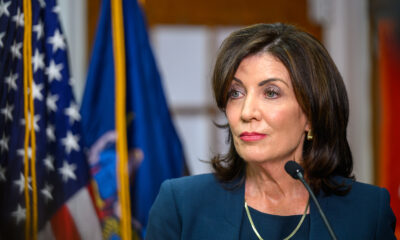
 Politics2 weeks ago
Politics2 weeks agoHochul’s careful conversations
-

 Technology2 weeks ago
Technology2 weeks agoThe best shows on Max (formerly HBO Max) right now
-
Politics3 weeks ago
Robert Jenrick vows to cut aid to countries that do not take back refused asylum seekers | Robert Jenrick
-

 Sport2 weeks ago
Sport2 weeks agoMan City ask for Premier League season to be DELAYED as Pep Guardiola escalates fixture pile-up row
-

 Football3 weeks ago
Football3 weeks agoSimo Valakari: New St Johnstone boss says Scotland special in his heart
-

 Money3 weeks ago
Money3 weeks agoThe four errors that can stop you getting £300 winter fuel payment as 880,000 miss out – how to avoid them
-
Business2 weeks ago
CEOs turn to podcasts to control their message
-
Business2 weeks ago
Sterling slides after Bailey says BoE could be ‘a bit more aggressive’ on rates
-

 Technology2 weeks ago
Technology2 weeks agoApple iPhone 16 Plus vs Samsung Galaxy S24+
-

 News2 weeks ago
News2 weeks agoReach CEO Jim Mullen: If government advertises with us, we’ll employ more reporters
-

 Money2 weeks ago
Money2 weeks agoWetherspoons issues update on closures – see the full list of five still at risk and 26 gone for good
-
Politics2 weeks ago
Rosie Duffield’s savage departure raises difficult questions for Keir Starmer. He’d be foolish to ignore them | Gaby Hinsliff


You must be logged in to post a comment Login